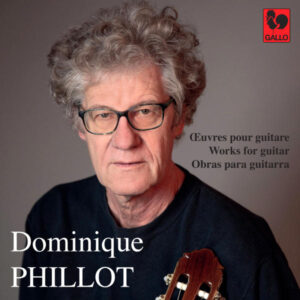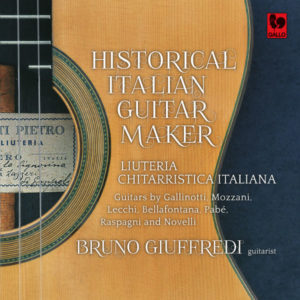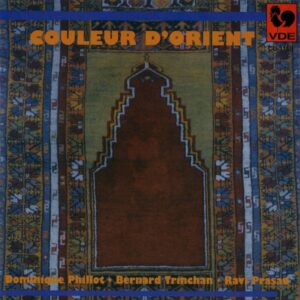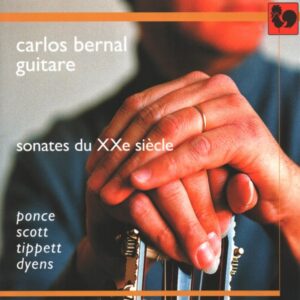Extraits / Excerpts
VILLA-LOBOS : 12 ETUDES – 5 PRELUDES – DAGOBERTO LINHARES, GUITAR
Heitor VILLA-LOBOS : 12 Etudes – 5 Preludes.
Dagoberto Linhares, Guitar.
“Many people neither understand nor wish to understand nationalism in art. They think that the arts – and consequently – music should serve a “universal patron”. Everyone who detaches himself from the popular sources becomes, in so doing, one who is routine-minded and retrogressive”.
Heitor Villa-Lobos
From his early childhood Villa-Lobos nourished himself with these popular sources, these roots that are indispensable to every creative person; with passion and with fire, he immersed himself in these musics, discovering the improvisations of the “seresteiros”, those street musicians whose groups freely bring together plucked strings, woodwind and brass instruments, responding to the rhythms of the “chorôes” of Rio de Janeiro, soon impregnating himself with the thousand musical sources of “deep” Brazil.
[show_more more=”Show More” less=”Show Less”]
In the many intense experiences that contributed to a solid classical grounding, he was encouraged by a father who, passionately devoted to music, organized real concerts at his home, in which the little Tuhu took part as a cellist. “I also learned to play the clarinet, and i had to recognize the genre, style, character and origin of the works, as well as to name immediately the notes, the sounds, the noises that came incidentally to my ear; like, for example, the grinding of the wheel of a tram car, the chirping of a bird, the falling of a metallic object, etc. Woe betide me when l failed!”.
And when, after his father’s death, his mother forbade him to concern himself with music, the young man left the family home, borrowed a guitar and went to mix with the popular musicians; it is thus that he, who was to become the most important of Brazilian composers, learned the technique of the guitar and discovered the treasures of the musical imagination of his people – a “national” music that had always fascinated him.
Entirely naturally, the popular sources revitalized the western-musical heritage (notably that of Bach, the scores of whose music music accompanied Villa-Lobos on all his travels), and the melodic and rhythmic material of Brazilian musics was thus able to bloom, enriching the European techniques: in this connection, Villa-Lobos subscribed to the tradition of country that knew how to adopt and smoothly integrate the diverse musical influences of the peoples who had settled there, particularly in the nineteenth century: Spanish, German or Polish, French Portuguese, African or Amerindian influences.
And, in this country where, since the eighteenth century, popular music had exerted a definite influence on “serious” music, no composer could escape the impact of the tradition and culture: “in that, Brazil has a special place in the whole history of music: when even Bartók had to analyse the popular sources in order to enrich his creative genius, the Brazilian composer is born into the popular tradition and grows up in it” (Marlos Nobre).
We taste these healthy complementing, this intense fusion of two worlds, in all their richness and refinement, on hearing the Etudes and Preludes of Villa-Lobos, a composer who, paradoxically, wrote only little for the guitar: to the seventeen pieces in the above mentioned two sets, we can add only a free-form piece titled Panqueca (Pancake, dating from 1904, now lost), the Suite populaire brésilienne (1908-1912), the Choro No. 1 “Tipico” (1920), and a Concerto (1951).
Very probably begun in 1924, the Douze Etudes were completed in 1929, during Villa-Lobos’ second sojourn in Paris where, after the assessment, came the admiration of the greatest artists and composers. The Etudes were published only in 1953, with a preface by their dedicate. Andres Segovia: “These Etudes consist of formulae of surprising effectiveness for the technical development of the two hands, and “disinterested” musical beauties, without pedagogical aim, with the permanent aesthetic value of concert pieces.
The history of music offers few examples of composers who unite these two qualities in works termed “Studies”. The names of Scarlatti and Chopin immediately spring to mind. Both achieved their didactic aims without a trace of or aridity or monotony, and if the diligent pianist gratefully observes the flexibility, strength and independence which these pieces develop in the fingers, the artist who reads or hears them admires the nobility, the ingenuity, the grace and the poetic emotion that emanate from them. Villa-Lobos has presented the history of the guitar with the fruits of his talent, as vigorous and enjoyable as those of Scarlatti and Chopin”.
“I have not wished to change any of the fingering that Villa-Lobos has marked for the execution of these pieces. He knows the guitar perfectly and, if he chose a particular string or fingering to bring out specific phrases, we should strictly obey his wishes, even at the price of having to make greater technical efforts”
These Etudes are certainly the most difficult ever conceived for the instrument: in this respect they belong within the tradition of pieces with an essentially pedagogic purpose (Alonso Mudarra, Gaspar Sanz, Fernando Sor); a didactic finality which these twelve Etudes surpass, and further, in order to transform them into equally searching works of intelligence and sensibility, giving
a major role to improvisation and to popular “impressions” (sonorities, melodies, rhythms etc). For, in each of these pieces, which may be conceived in chords or arpeggios, the spirit of Brazil is evoked: a fascination with rhythm and its proud syncopations, the emotion of the Modinha with its clashing basses and pointed melody, passionate and spontaneous, beautiful and lyrical sadness, lamentations… Seductive charm, melancholy, musing…
It is to speculative musing that we are invited by the Preludes, written in Rio de Janeiro in 1940, and which Villa-Lobos dedicated to his wife, Mindinha; a set of which only five pieces survive, the sixth – lost? – being, according to its composer, “the most beautiful of them all”.
These Preludes, besides having as tyrannical a technical difficulty as the Etudes, are to be counted among the masterpieces, not only of Villa-Lobos but within the whole literature of the guitar: works whose form embraces liberty and emotion; poignant meditations or the “tropical affections” (Hermino Bello de Carvalho) of Villa-Lobos, united in one glowing homage to the legacy of Bach and that Brazilian profundities.
(Bernard Sonnaillon, Translation: John Duarte)
[/show_more]
- Categories
- Composers
- Interprets
- Booklet











